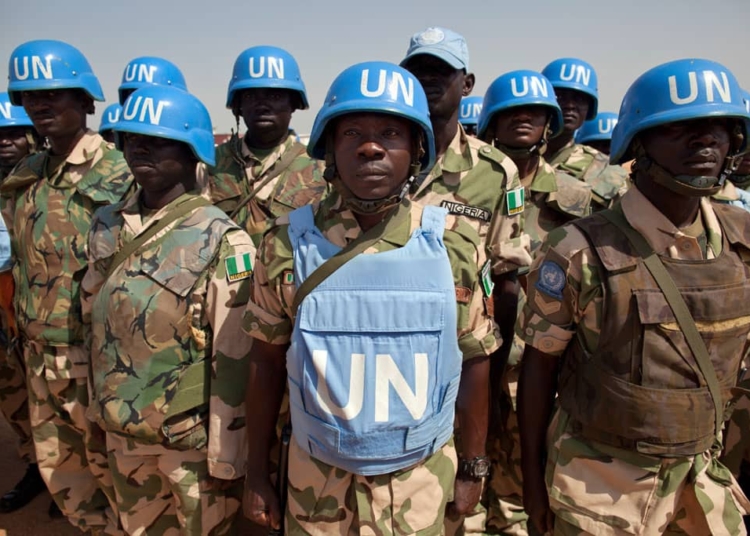The United Nations Peacekeepers are crucial in maintaining global peace and security, with missions that involve monitoring ceasefires, protecting civilians, and providing humanitarian aid. Since 1948, over 70 peacekeeping missions have been deployed, impacting countless lives in over 120 countries. Operating under the authority of the UN Security Council, Peacekeepers prevent conflict outbreaks and intervene in dangerous situations to protect civilians and provide aid. Well-known missions like UNIFIL in Lebanon and UNMISS in South Sudan face challenges but work towards peace and security. Made up of military personnel, police officers, and experts, Peacekeepers follow strict rules of engagement and undergo training to effectively carry out their duties. Despite challenges, they play a vital role in promoting a more peaceful world through conflict prevention and resolution.
The United Nations Peacekeepers play a crucial role in maintaining peace and security around the world. Their missions involve monitoring ceasefires, protecting civilians, mediating conflicts, and providing humanitarian assistance. Since its inception in 1948, the United Nations has deployed over 70 peacekeeping missions, involving more than 120 countries and impacting countless lives.
The Peacekeepers operate under the authority of the UN Security Council, with the primary goal of preventing the outbreak or recurrence of conflict. They are often called upon to intervene in complex and dangerous situations where there is a threat to civilians or where humanitarian assistance is needed. The Peacekeepers’ tasks can range from disarming combatants to monitoring human rights abuses and facilitating the delivery of aid.
One of the most well-known UN Peacekeeping missions is the United Nations Interim Force in Lebanon (UNIFIL), which has been active since 1978. UNIFIL is tasked with maintaining peace and security along the Lebanese-Israeli border, ensuring the withdrawal of Israeli forces from Lebanese territory, and assisting the Lebanese government in restoring its authority in the area. The mission has faced numerous challenges over the years, including clashes between Israeli and Hezbollah forces, but has managed to prevent a major escalation of violence in the region.
Another significant Peacekeeping mission is the United Nations Mission in South Sudan (UNMISS), which was established in 2011 following the outbreak of civil war in the newly independent country. UNMISS is mandated to protect civilians, monitor human rights violations, support the implementation of the peace agreement, and facilitate the delivery of humanitarian aid. The mission has faced numerous challenges, including attacks on Peacekeepers and aid workers, as well as outbreaks of violence between rival factions.
The Peacekeepers are primarily made up of military personnel from member states who volunteer to serve in peacekeeping missions. These troops come from a variety of countries and backgrounds, and their presence helps to demonstrate the international community’s commitment to peace and security. In addition to military personnel, the Peacekeepers also include civilian police officers, human rights monitors, and other experts who can provide specialized support in areas such as rule of law, gender equality, and conflict mediation.
The Peacekeepers operate under strict rules of engagement, which are designed to ensure their effectiveness while also protecting the rights of civilians. These rules dictate when and how force can be used, as well as the procedures for conducting investigations into alleged misconduct. The Peacekeepers are also subject to regular training and evaluation to ensure that they are prepared and equipped to carry out their duties effectively.
Despite their best efforts, the Peacekeepers face numerous challenges in the field, including hostile environments, limited resources, and complex political dynamics. They often operate in areas where there is little or no infrastructure, making it difficult to deliver humanitarian assistance and communicate with local populations. The Peacekeepers also face threats from armed groups, criminal networks, and other actors who seek to undermine their efforts to maintain peace and security.
In recent years, the United Nations has faced criticism for its handling of certain peacekeeping missions, including allegations of misconduct and lack of accountability. In response, the organization has implemented a number of reforms to strengthen the effectiveness and transparency of its peacekeeping operations. These reforms include increased training and vetting of personnel, improved mechanisms for reporting and investigating misconduct, and greater cooperation with host countries and regional organizations.
Overall, the United Nations Peacekeepers play a vital role in promoting peace and security around the world. Their efforts help to prevent conflict, protect civilians, and promote political reconciliation in some of the most challenging and volatile areas of the globe. While they face numerous challenges and limitations, the Peacekeepers remain a key tool in the international community’s efforts to build a more peaceful and just world.













